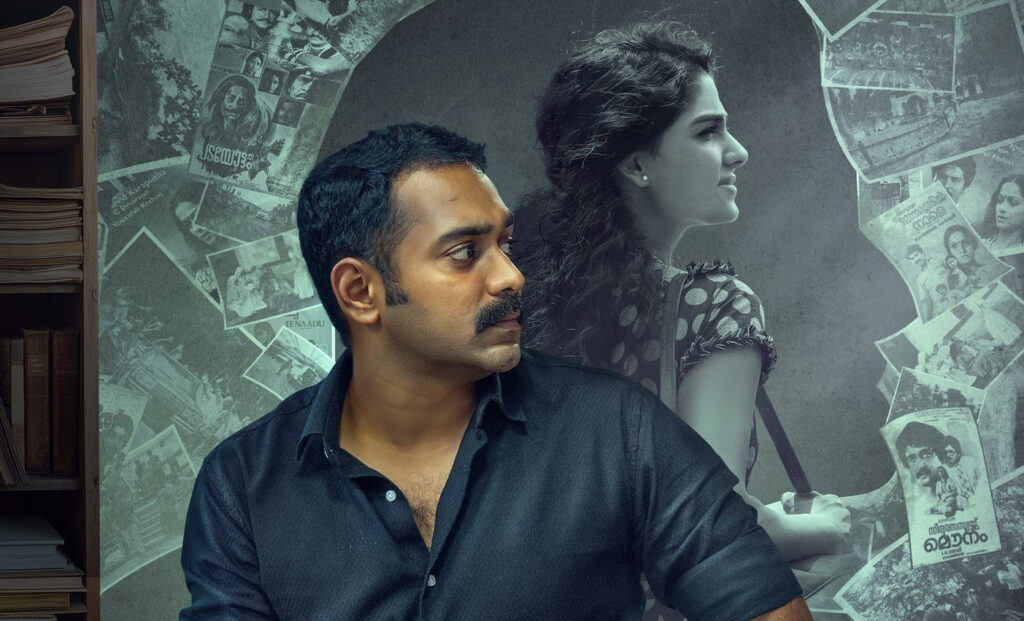
Do you miss the classic red herrings in suspense cinema? On this date, it is a tricky road to tread because the discerning viewers of 2025 are adept at identifying patterns. Filmmaker Jofin T. Chacko understands this, as demonstrated in the way he crafts Ramu Sunil’s story in Rekhachithram which unfolds in a setting perfectly suited for such a plot device. At a time when the Malayalam film industry’s safety standards stand questioned by the Hema Committee Report, here is a film that investigates an aspiring female actor’s mysterious disappearance. The story develops in the backdrop of a church and a congregation of nuns, offering an additional possibility to stride in the Abhaya Murder Case route. There’s also a millionaire in the matrix and some elements in the police force are blatantly corrupt. Rekhachithram‘s suspense lies in uncovering how the accused man is linked to the cinema unit, the church, and the missing girl. Was the film industry a safe place for women in the ‘80s? Were nuns sensitive to exploitation?
In a story that oscillates between two eras (the present and the 1980s), Rekhachithram centers around two people. In 2025, an ill-reputed cop Vivek Gopinath (Asif Ali) wants to know how Rekha (Anaswara Rajan) vanished into thin air in 1985. Becoming the film’s highlight is its cleverly woven screenplay which carves an alternate chapter in Kerala’s film history. The story takes us to the sets of the 1985 hit Kathodu Kathoram, where Rekha is a starry-eyed junior artist who dreams of becoming a heroine. The film’s blend of archival footage and AI-assisted recreations of iconic personalities is designed to excite Malayalam film buffs.
The first two acts unfold as any standard suspense thriller would. Jofin T. Chacko and Ramu Sunil’s screenplay is non-linear – as it should be. The ideas in Rekhachithram take finer shapes in the second half where the film invites unexpected anchors – some of them being film celebrities appearing as themselves. That said, Chacko’s film is not designed as a Hitchcockian thriller with a big reveal at the end. Yet its screenplay is filled with Easter eggs. Whether it is two unemployed men reminding themselves of the incident through Nna Thaan Case Kodu, T. G. Ravi (and his son Sreejith Ravi) portraying a version of Pallissery, or actor Jagadish sharing memories of his debut film Mutharamkunnu P. O., alongside the distinctive embroidery in a brand logo — each element seamlessly integrates into the narrative.
The throwback to the ’80s with glimpses of classics like 16 Vayathinile, Thrishna, and Unnikale Oru Katha Parayam must entice those who grew up in the VHS era of cinema. The investigation, too, shifts gears in no time and weaves in elements like screenwriter John Paul’s viral memoirs on YouTube. These meta-angles slacken the story as the screenplay indulges in nostalgic exploration that may appear distant to viewers unfamiliar with Kerala’s cinematic heritage.
ALSO READ: The 10 Best Malayalam Films of 2024
My concern with Rekhachithram is its jigsaw puzzle-like structure. Clues appear almost miraculously—whether it is an aged nun emerging out of nowhere or film personalities dropping sharp revelations. The events that lead to several people coming together to commit a major crime do not sync well either. Yet, I wouldn’t complain much because Jofin T. Chacko’s film remains consistently engaging. Appu Prabhakar’s cinematography has its share of merits, though the aerial establishing shots constantly feel out of place. The spaces they depict, such as the jungle and a mansion, lack the narrative significance seen in a film like Kishkindha Kaandam, where the bungalow becomes a character in its own right. Among other things, “The nun with an anklet” remains a chiming paradox as the sound designer (Jayadevan Chakkadath) never misses a beat in lending Rekhachithram its unique acoustics.
The leading man Asif Ali is easy on the eyes. He anchors a compelling story without overpowering it with excessive heroics even though the film generously gives him moments to shine. Anaswara Rajan is a picture of poise as the ill-fated acting aspirant. The actor’s classic appearance and enthusiasm make us equate her to Karthika and Revathi from the Bharathan-Padmarajan era of Malayalam cinema. Manoj K. Jayan does the villain act with a drop-dead gorgeous wardrobe and a zaddy-like gait making Vincent every bit of a tycoon. If Siddique and Sai Kumar barely pass muster, Saleema’s eerie presence is one to watch out for. Zarin Shihab, portraying her younger self, shines in a well-crafted role. Indrans, Megha Thomas, and Priyanka Nair do very well in their pivotal parts. Shaju Sreedhar and Pauly Valsan, appearing only for a few minutes, outperform seasoned actors Harisree Ashokan and Nishanth Sagar who are wasted.
Rekhachithram might be advertised as a how-dun-it or a why-dun-it but nothing distracts it from being a sublime love letter to Mammootty and, in turn, Malayalam cinema. In a film that maintains an unemotional tone, the climactic moment involving the legendary actor and an act of closure might well up your eyes. Under Jofin T. Chacko’s direction, the film gifts an unusual experience, setting the tone for another promising year for Malayalam cinema.
Rating: ★★★ 1/2

